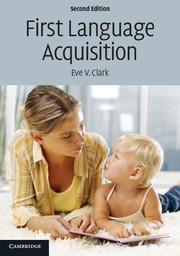1 - Acquiring language: Issues and questions
Summary
Language is quintessentially human. We use spoken language every day, face-to-face, as a means of communication, while written language allows us to record and hold on to our history across generations. Language itself is very complex. It has a sound system that allows us to use numerous distinct words, a vocabulary of some 50,000 to 100,000 terms for many adults, and a series of constructions for relating these words. It allows us to express innumerable ideas, describe events, tell stories, recite poems, buy, sell, or bargain in markets, administer legal systems, make political speeches, and participate in the myriad other activities that make up the societies we live in. Language allows us to coordinate what we do with others, relay information, find out answers, and carry out everyday activities – gossiping, making puns, writing memos, reading newspapers, learning histories, enjoying novels, greeting friends, telling stories, selling cars, reading instructions – the list is unending. Language use calls for an intricate web of skills we usually take for granted. It is an integral part of everyday life that we rely on to convey wants and needs, thoughts, concerns, and plans. Using language seems as natural as breathing or walking.
But babies are not born talking. They learn language, starting immediately from birth. What do they learn? They need sounds and words, meanings and constructions.
Information
- Type
- Chapter
- Information
- First Language Acquisition , pp. 1 - 18Publisher: Cambridge University PressPrint publication year: 2009
